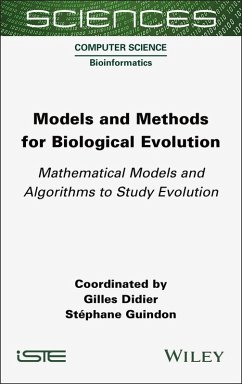Biological evolution is the phenomenon concerning how species are born, are transformed or disappear over time. Its study relies on sophisticated methods that involve both mathematical modeling of the biological processes at play and the design of efficient algorithms to fit these models to genetic and morphological data. Models and Methods for Biological Evolution outlines the main methods to study evolution and provides a broad overview illustrating the variety of formal approaches used, notably including combinatorial optimization, stochastic models and statistical inference techniques. Some of the most relevant applications of these methods are detailed, concerning, for example, the study of migratory events of ancient human populations or the progression of epidemics. This book should thus be of interest to applied mathematicians interested in central problems in biology, and to biologists eager to get a deeper understanding of widely used techniques of evolutionary data analysis.
Dieser Download kann aus rechtlichen Gründen nur mit Rechnungsadresse in A, B, BG, CY, CZ, D, DK, EW, E, FIN, F, GR, HR, H, IRL, I, LT, L, LR, M, NL, PL, P, R, S, SLO, SK ausgeliefert werden.


